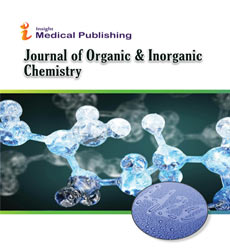2020 Conference Announcement on Analytical Chemistry
Andrey Bulatov
Andrey Bulatov
Professor of Analytical Chemistry Department, Analytical Chemistry University, Saint Petersburg State University Country, Russia, E-mail: bulatov_andrey@mail.ru

The importance of analytical chemistry has ne'er been bigger than it's nowadays. The demand in modern societies for a variety of safe foods, affordable consumer goods, abundant energy, and labor-saving technologies places a great burden on the environment. All chemical producing produces waste merchandise additionally to the specified substances, and waste disposal has not always been carried out carefully. Disruption of the environment has occurred since the dawn of civilization, and pollution problems have increased with the growth of global population. The techniques of analytical chemistry are relied on heavily to keep up a benign atmosphere. The undesirable substances in water, air, soil, and food must be identified, their point of origin fixed, and safe, economical methods for their removal or neutralization developed. Once the amount of a pollutant deemed to be hazardous has been assessed, it becomes important to detect harmful substances at concentrations well below the danger level. Analytical chemists seek to develop increasingly accurate and sensitive techniques and instruments.
An analytic technique normally use is gas activity, which separates the different components of a gaseous mixture by passing the mixture through a long, narrow column of absorbent but porous material. The completely different gases act otherwise with this sorbent material and submit to the column at different rates. As the separate gases emanate of the column, they can be passed into another analytic instrument called a mass spectrometer, which separates substances according to the mass of their constituent ions. A combined gas chromatograph–mass prism spectroscope will speedily establish the individual elements of a chemical mixture whose concentrations is also no bigger than a number of components per billion. Similar or even greater sensitivities can be obtained under favourable conditions using techniques such as atomic absorption, polarography, and neutron activation. The rate of instrumental innovation is such analytic instruments typically become obsolete inside ten years of their introduction. Newer instruments are more accurate and faster and are employed widely in the areas of environmental and medicinal chemistry.
Andrey Bulatov gives “Membrane-based liquid-liquid micro extraction approaches for automated sample preparation” by saying that Membrane-based separation methods have grown increasingly popular for sample pretreatment of a wide range of complex sample matrixes due to their simplicity, low cost and adaptability to a wide variety of analytical instrumentations.
Fundamental information about Analytical Chemistry is going to be discussed in 11th international Conference on Analytical Chemistry which is going to be held during April 22-23, 2020, Berlin, Germany with the theme “Innovative research in the field of chemistry related to Analytical Techniques.” under the Organizing Committee Members.
Regards,
Ethan Mathew
Email: analyticalchemistry@europeconferences.biz
-
11th Edition of International Conference on Analytical Chemistry
Berlin, Germany
Open Access Journals
- Aquaculture & Veterinary Science
- Chemistry & Chemical Sciences
- Clinical Sciences
- Engineering
- General Science
- Genetics & Molecular Biology
- Health Care & Nursing
- Immunology & Microbiology
- Materials Science
- Mathematics & Physics
- Medical Sciences
- Neurology & Psychiatry
- Oncology & Cancer Science
- Pharmaceutical Sciences
